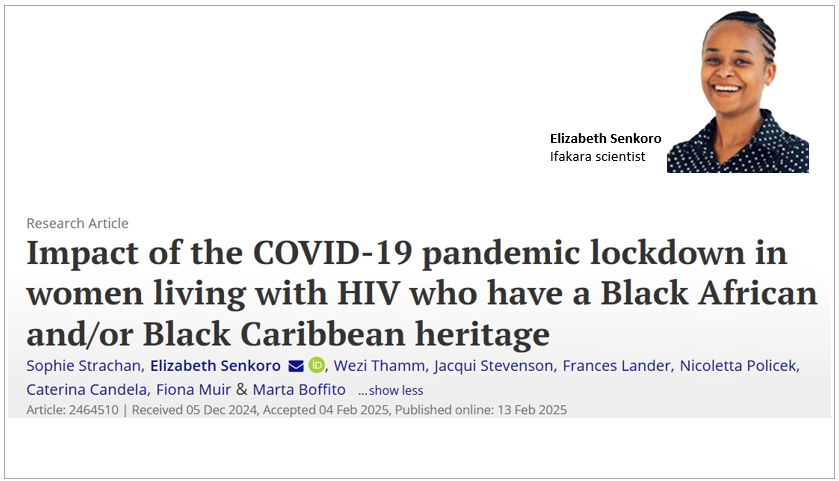
COVID-19: Pandemic’s impact on black women living with HIV

A recent study by scientists from the UK and Tanzania shows that anxiety, stigma and trauma surged during the COVID-19 lockdowns for Black African and Black Caribbean women living with HIV, underscoring the need for improved healthcare services during pandemics. Many women reported experiencing worsened mental health challenges and healthcare access during that period.
The research, done at Chelsea and Westminster Hospitals NHS Foundation Trust in the UK, shows that stigma in healthcare settings and inadequate mental health support made their struggles even more severe. The study calls for urgent action to eliminate stigma, improve access to care, and ensure that mental health services are integrated into HIV treatment programs.
Ifakara scientists among authors of the study
Elizabeth Senkoro, a scientist from Ifakara Health Institute and the study’s lead co-author, contributed to the research. The study published on the HIV Research & Clinical Practice journal, employed an online survey and in-depth interviews conducted between October 1, 2022, and June 1, 2023, to assess the effects of the pandemic on this vulnerable group.
Lockdowns worsened mental health, healthcare access
Among the 393 women contacted, 36 completed the survey, and 22 participated in interviews. The findings revealed that COVID-19 lockdown restrictions led to increased mental health challenges: 48% of respondents reported heightened anxiety, while 45% experienced low mood. Notably, 54% of participants stated that the COVID-19 experience re-triggered the trauma of their initial HIV diagnosis.
Interviewees also mentioned gaps in psychological support and healthcare services, emphasizing that their mental health and co-morbidities were often overlooked. Additionally, stigma within healthcare settings remained a major concern, with some women feeling pressured to disclose their HIV status under difficult circumstances.
The need for change post-pandemic
The study underscores the urgent need for healthcare systems to address institutional stigma and discrimination against Black women living with HIV. Post-pandemic recovery efforts should focus on ensuring equitable access to care and mental health support for this population.
Senkoro and colleagues stress that bridging these gaps requires tailored interventions to ensure women receive comprehensive, stigma-free healthcare services. Their findings serve as a call to action for policymakers and healthcare providers to dismantle systemic barriers and improve the overall quality of care for women disproportionately affected by HIV.
“Although preliminary and based on limited data, we would like to conclude by highlighting some recommendations to improve health and health services for Black African and Black Caribbean heritage women living with HIV in a post-pandemic context,” the scrientists remarked.
“Services could be improved by adopting a holistic approach that encompasses mental health assessments, appropriate referrals, and support to ensure adherence to antiretroviral treatment. The development of woman-centered, trauma-informed care models tailored to the specific needs of these communities should no longer be delayed. Additionally, investing in the provision of relatable peer support (provided individually and with phone and online options, as well as face-to-face) within HIV clinical settings is essential to improve engagement in care and reduce stigma,” they concluded.
Read the publication here.
